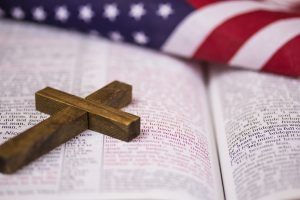Leslie Weber, Chesapeake, VA
Warm-up Questions
Have participants talk about what their experience of Holy Week has been in the past. Possible conversation starter questions include:
- Does the congregation you attend “celebrate” Palm Sunday on its own or combine it with Passion Sunday?
- What ritual actions are meaningful to you on Palm/Passion Sunday? (waving palms, being part of procession, having a real live donkey, hearing the whole passion story, etc.)
- Have you ever attended a Maundy Thursday worship service? What do you remember?
- Have you ever attended a Good Friday worship service? What do you remember?
- Have you ever attended an Easter Vigil worship service? What do you remember?
- If you haven’t ever attended a worship service during Holy Week (Maundy Thursday/Good Friday/Easter Vigil), why not?
Provocative Palms
Recently, the Miami Beach City Commission approved an urban forestry master plan. The goal of the plan is to reduce the proportion of the city’s canopy made up of palm trees to 25% by 2050. By increasing the number and percentage of other trees that provide more shade in the city, they hope to extra comfort for residents and visitors, while also helping to “reduce urban warming, improve air quality, and absorb more carbon and rainwater.”
The master plan was passed unanimously, but now one city commissioner is speaking out against how the plan is being implemented. He and his staff are encouraging residents to oppose removal of palm trees as part of construction projects around the city. He is worried that as the prominence of palm trees diminishes in the city’s overall canopy, the city’s “historic, cultural, and economic brand” will suffer. The city commissioner’s aide commented “if this plan goes forward, they might as well remove the palm from our City’s official logo.”
The city’s environmental and sustainability director is speaking out in opposition to the city commissioner’s concerns, saying that the “city is not going around chopping down palm trees” and that at 25% of the total canopy, “palms will continue to be a focal point along the city’s roads, greenspaces, and parks,” even while shade trees are planted as a faster rate in order to “maximize the environmental, social, and economic benefits of trees.”
Full article: https://www.miamiherald.com/news/local/community/miami-dade/miami-beach/article249432995.html
Discussion Questions
- What are the pros/cons of Miami Beach’s plan to reduce the percentage of palm trees in the city’s canopy over the coming decades? (This is a great chance to practice considering all sides of an argument.)
- List all the ways that you benefit from trees.
- What are you, your household, your congregation, and your local government doing in response to or in an effort to slow climate change?
Sunday of the Passion/ Palm Sunday
Mark 15:1-39 [40-47] (alternate)
(Text links are to Oremus Bible Browser. Oremus Bible Browser is not affiliated with or supported by the Evangelical Lutheran Church in America. You can find the calendar of readings for Year B at Lectionary Readings.)
For lectionary humor and insight, check the weekly comic Agnus Day.
Gospel Reflection
Even if you don’t read any of the optional parts (Mark 14 and 15:40-47), this Sunday’s gospel reading is long. You may be familiar with the basic story, but the details vary across the four Gospel accounts. It is easy to overlook some parts during Holy Week. This is why it is helpful to hear the story as a whole on Palm/Passion Sunday, and then break it up into shorter texts. During Holy Week we hear short parts of the story, paired with ritual actions (Palm/Passion Sunday—procession with palms; Maundy Thursday—foot washing, Holy Communion, stripping of the altar; Good Friday—procession and adoration of the cross).
It is undeniable that this story is full of people and groups who have different expectations, hopes, and either a readiness or reluctance to change. Just in Mark 15:1-39, we get a glimpse of various people’s values/priorities:
- The Jewish Leadership (chief priests, scribes, elders, whole council) is in search of a way to get rid of Jesus and keep their position as the religious authority (Mark 14:1).
- Pilate is amazed by Jesus’ answers (and lack thereof) to the charges brought against him (Mark 15:5) but also wants to keep the crowd calm (Mark 5:15).
- Jesus Is committed to in-breaking the kin-dom of God. Although he would prefer an easier way, he is committed to doing what needs to be done (Mark 14:36).
- Barabbas and rebels are willing to kill in order to change the status quo (Mark 15:7).
- The Centurion sees and confesses that Jesus is “God’s Son,” despite his position and background.
Throughout Jesus’ life, we see God working to turn the world upside down, to reorient people’s priorities, to make our world and lives look a bit more like God’s original intention for a creation where no one lacks anything.
God was never confined to the temple in Jerusalem. We confess that Jesus is God incarnate, in-fleshed, but the tearing of the temple curtain at the moment of Jesus’ death is a sign. It wasn’t torn from bottom to top (as it would have been if torn by human hands), but “was torn in two, from top to bottom” (Mark 15:38), as if today God has left the building. Today God moves among and through each of us to enact all that for which Jesus preached, worked, and ultimately died and was raised.
Discussion Questions
- Read the text. What parts of the story jumped out to you as you listened this time?
- Were there any parts that you did not remember or remembered differently? (Having a synopsis or parallel edition of the four Gospels would aid in comparing the details between the accounts.)
- With which character in the story do you most identify and why? How do their values/priorities compare to your values/priorities?
- How do you feel about change? Is there is something in your life, congregation, community that might need to end/die in order for something new/better to be established and flourish?
Activity Suggestions
- Find a creative way to hear and experience the whole Holy Week story. Examples: there are YouTube videos of the Stations of the Cross, you can a buy or make a set of “resurrection eggs,” or (if it safe to gather and weather permits) walk around the church property or neighborhood, reading a different part of the story in a different location.
- Make space for everyone to reflect on the story of Jesus’ Passion. Provide art supplies for doodling, offer paper and pencils for journaling, set up a prayer labyrinth, or any other means of personal or group reflection that your group would find helpful.
- Palms
- If you congregation is supplying palms this year, learn about your congregation’s palms:
- From what company do you order them?
- Where are they grown?
- Are they sustainably raised? (think about the environment and labor practices)
- If your congregation isn’t supplying palms this year, use construction paper (or other craft supplies) to make your own palms to use during the service. You can search the internet for ideas about how to do this, but an easy one is to trace your hand on green paper, cuts out 5 or so “copies” and then glue them onto a popsicle stick.
- If you congregation is supplying palms this year, learn about your congregation’s palms:
Closing Prayer
Redeeming God, thank you for all that you have given us, especially the gift of eternal, abundant life. Help us to know and work for your intentions in our lives and our world. Amen.





